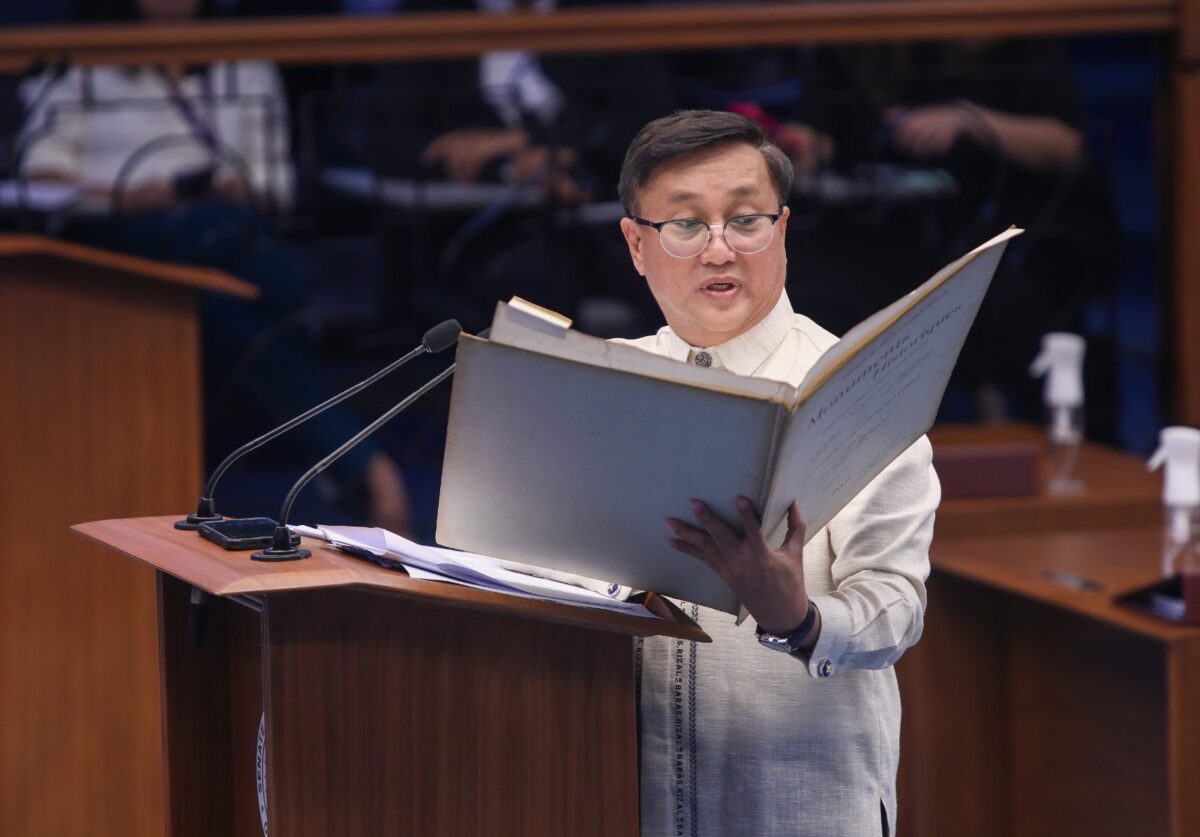
ARCHIPELAGIC SEA LANES ACT: Senate Majority Leader Francis Tolentino, during a plenary session in August 13, 2024, says the approval of Senate Bill No. 2665 or the proposed Archipelagic Sea Lanes Act is a significant victory for the country. —Senate Public Relations and Information Bureau
MANILA, Philippines — The National Security Council (NSC), over the weekend, said the passage of the archipelagic sea-lane (ASL) bill and the Philippine Maritime Zones bill would be crucial in enhancing the country’s national security and territorial integrity in the face of Beijing’s sweeping claims in the South China Sea.
The approval of the ASL at the Senate came weeks after both houses of Congress ratified the reconciled versions of the landmark maritime zones bill, which define the extent of Philippines waters.
Both are priority measures of the Marcos administration.
READ: Archipelagic Sea Lanes bill gets Senate nod in final reading
The maritime zones bill is now waiting for the President’s signature while he is also expected to sign the ASL once it reaches his desk.
In a statement on Friday, the NSC said the ASL and maritime zone bills would “set our archipelagic house in order, by aligning domestic legislation with the United Nations Convention on the Law of the Sea.
The NSC stressed the National Task Force West Philippine Sea “recognizes the strategic importance of maritime legislation, which will bring attention to the proper scope of the Philippine maritime domain and the need for strategic investments.”
Legal bases
The NSC added this would reinforce “the Philippines’ ability to govern the waters within its sovereignty, sovereign rights and jurisdiction.”
Senate Majority Leader Francis Tolentino, principal author of the ASL bill, said designating ASLs would “solidify the country’s maritime domain and prevent arbitrary passage in the Philippine archipelago by foreign vessels and aircraft.”
“We will be able to better monitor the movement of foreign vessels and aircraft and ask them to leave should they pose a threat to our peace and order and national security,” Tolentino said.